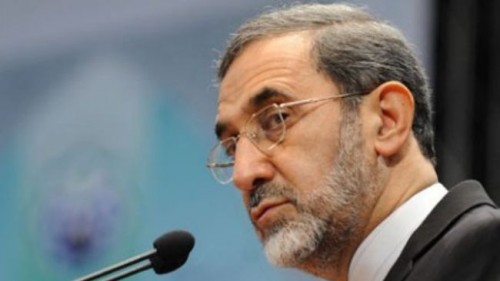LATEST: Regime Erects Monument to Iranian Jewish Soldiers Killed in Iran-Iraq War
The latest conspiracy theory from Iran comes from the Supreme Leader’s top foreign aide, Ali Akbar Velayati — he assured journalists on Thursday that Man Haron Monis, the Iranian expatriate who held more than 30 people hostage in a Sydney cafe and killed two of them, was “a tool” of Australia’s intelligence services.
Velayati criticized the Australian Government for offering asylum to “a person with mental disorders and a criminal background”. The former Foreign Minister, who has also maintained that the Islamic State is a creation of the US and Israel, declared, “A mentally ill person can become a tool of a country’s intelligence system and can do whatever they are ordered to do.”
Monis, born Mohammad Hassan Manteghi, moved to Australia in 1996. He proclaimed himself an Islamic cleric, “Sheikh Haron”, but had been charged as an accessory in the murder of his ex-wife and was awaiting trial for sexually assaulting seven women while working as a “spiritual healer”. He was also known for a “hate mail” campaign, protesting intervention in Afghanistan and directed at the families of slain Australian soldiers.
Iran Police Chief Esmail Ahmadi Moghaddam said on Tuesday that Tehran had asked Australia in 200 to extradite Monis, wanted on fraud charges.
Regime Erects Monument to Iranian Jewish Soldiers Killed in Iran-Iraq War
The regime has unveiled a monument to Iranian Jewish soldiers killed in the war with Iraq from 1980 to 1988.
Deputy Speaker of Parliament Mohammad Hassan Aboutorabi-Fard attended the ceremony, along with Jewish community leaders and Iranian religious officials. Wreaths were placed at the monument, with images of the martyrs and the Hebrew inscription “Peace Forever”.
The Deputy Speaker said, “The explicit stances of the Jewish community in supporting the Islamic Republic’s establishment and their obedience to the Supreme Leader of the Revolution demonstrate the bonds originating from the teachings of the divine religions.
He praised the Jewish community for denouncing US demands on Iran and the “violent and inhumane” behavior of Israeli Prime Minister Benjamin Netanyahu.
“The government has listened to our grievances and requests. That we are being consulted is an important step forward,” said Homayoun Samiah, leader of the Tehran Jewish Association. “Under former President Mahmoud Ahmadinejad, nobody was listening to us. Our requests fell on deaf ears.”
Most of Iran’s 77 million people are Shiite Muslims and its ruling establishment is led by hardline clerics who preach a strict version of Islam. Many Jews fled the country after the 1979 Islamic Revolution. Jews linked to Israel afterward were targeted. Today, estimates suggest some 20,000 Jews remain in the country.
Economy Snapshot: Up to 1200% Increase in Price of Tomatoes
A citizen journalist in Tehran offers a snapshot of inflation, citing a rise of up to 1200% in the price of tomatoes since the summer.
Writing for Iran Wire, Marjan Mafi said a kilogram of tomatoes now costs close to $4, compared with 30 to 60 cents six months ago.
The rise is due in part to uncharacteristically cold weather and produce from the warmer south failing to reach the Tehran market. However, some media outlets are blaming the Rouhani Government. The hardline Vatan-e Emrouz, wrote:
In many parts of the world tomatoes are thrown at politicians’ heads and faces but here, officials are so immersed in politics — and only politics, domestic or foreign — that the price of a tomato has become a bat hitting people across the head.
Hossein Mohajerani, the president of the Green Grocers Union, said, “Every year that the city storehouses run out of tomatoes the price goes up by two or three-fold. This year it’s even higher because of the delay [in arrival of produce from the south.” He maintained that, when the southern tomatoes arrive, the price will fall to approximately 55 cents per kilogram.
Razi Nouri, a member of the Parliamentary Committee on Agriculture, Water and Natural Resources, said that shortages arise because farmers are not given a fixed price for their produce before harvest time. Thus, they leave produce like tomatoes, potatoes, and onions, in the ground.
He asserted, “With the right planning and by providing necessary facilities like storehouses and cold houses, the price of tomatoes wouldn’t go higher than 50 cents.”

